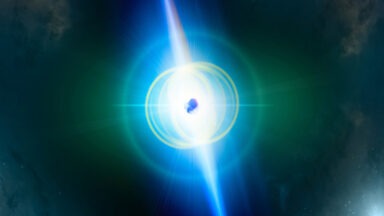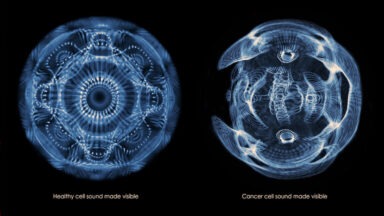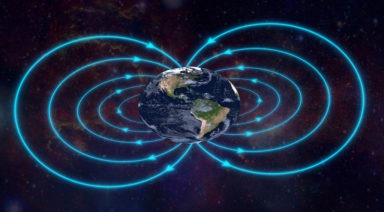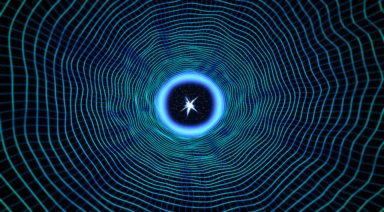Scientists Discover a 12 Mile-Wide Body of Liquid Water on Mars
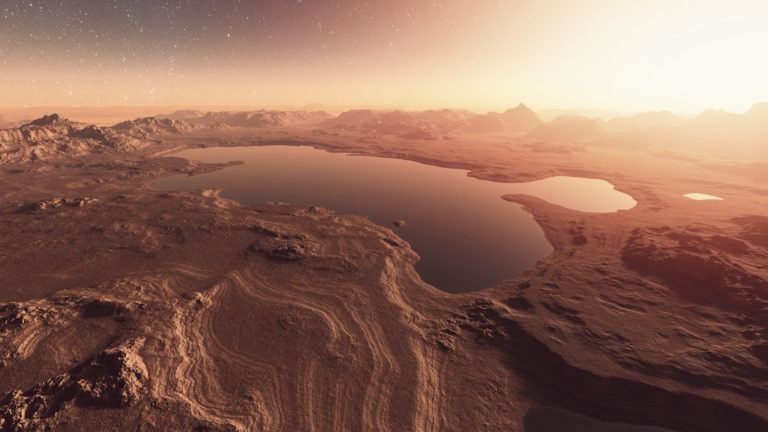
Scientists determined almost definitively that a lake of liquid water exists below the surface of Mars, confirming the long-standing belief that the red planet was once home to massive oceans, and even the possibility that life thrived there. The Mars Express satellite and its MARSIS system discovered the 12.4 mile-wide lake below the planet’s surface by shooting pulses of radar near the planet’s ice caps.
Similar to pockets of subglacial water in Antarctica, the polar ice caps provide pressure and a layer of insulation from the planet’s harsh climate, lowering the melting point and keeping it from freezing. In a paper published in the journal Science, researchers noted that the lake likely consists of more of a briney sludge than a pool of liquid water, the way we’d imagine it on Earth. The temperature where it’s located is a frigid negative 80 degrees Fahrenheit.
The pool is about a mile below ground and according to one scientist involved in the study, contains “a serious quantity of water, on the order of millions of liters.”
MARSIS, the Mars Advanced Radar for Subsurface and Ionosphere Sounding system is only able to detect large bodies of water, meaning a multitude of smaller pockets could exist elsewhere throughout the planet, adding to the possibility that life there was once common.
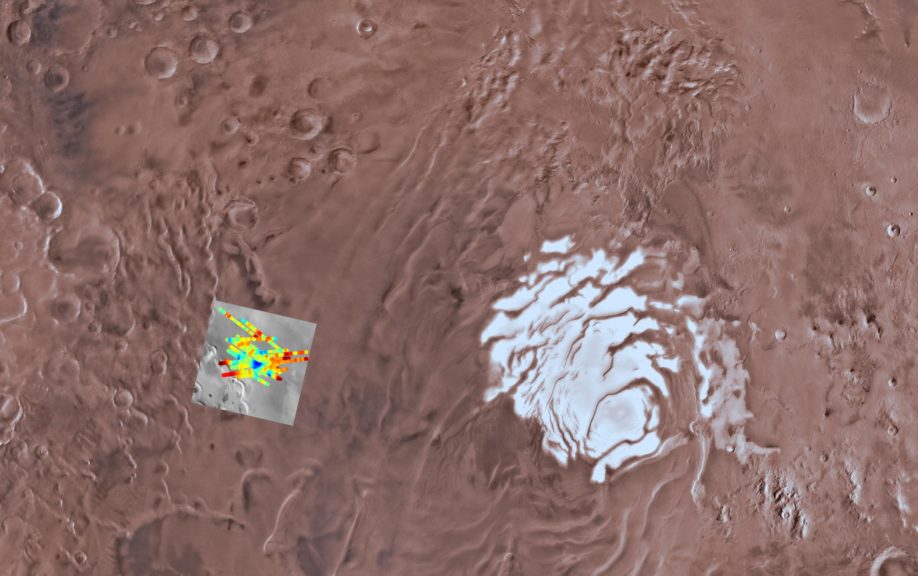
Radar imaging of the body of water near Martian ice caps
The discovery is huge for the prospect of sending a manned mission and eventually colonizing the red planet. The availability of liquid water not only provides a source for humans to drink, it is also a necessary ingredient for manufacturing rocket fuel.
But for those who have been studying the strange anomalies on the planet, including the Face of Cydonia, pyramids, and seemingly artificial features, this discovery is just a drop in the bucket of a much larger disclosure regarding life on the red planet. These abnormalities have led many to believe an ancient civilization may have once existed there before its atmosphere was eventually destroyed by a nuclear winter. Whether that cataclysm was man made or due to a cosmic event has also been debated.
Researchers like Richard Hoagland and Mike Bara believe NASA is withholding current evidence of life on Mars, and the latest announcement has been made numerous times in the past, dating back to discoveries made by the Phoenix lander in 2008.
With recent evidence that NASA accidentally destroyed organic matter collected by the Viking probes 40 years ago, it wouldn’t be a surprise to discover that it has already found evidence of life there.
Watch this Conscious Media interview in which Regina Meredith discusses the possibility of life on Mars with Richard C. Hoagland:
What's Sending These Mystery Signals From 4,000 Lightyears Away?

A mysterious repeating radio signal from space has been detected that scientists have not seen before. What or who is sending this signal?
Scientists have detected a radio signal from somewhere out in deep space some 4,000 light-years away.
The signal pulsed every 18 minutes and 18 seconds, for 30 to 60 seconds — every time, 18 minutes and 18 seconds. It did this for three months then it stopped. Scientists assume it is a naturally occurring rotating object that, like a lighthouse shining its beacon, will send what appears to be a repeating signal.
But Natasha Hurley-Walker, whose study into this repeating signal was recently published in the journal Nature told Vice, “[T]here are no models that produce such bright radio emission from two objects in orbit with each other, with such precision, and any that would produce any kind of radio waves would also produce X-ray emission, which we don’t see.”
Some think this might be coming from a highly magnetized star called a magnetar. So what does this all mean? Astronomer and Gaia News contributor Marc D’Antonio weighed in on the subject.
“Maybe this strange signal is some weird kind of magnetar that is rotating, but we’re not used to seeing it rotate every 18 minutes, that means a rather slow rotation. So, this is kind of weird, it’s something that doesn’t match any model that we know, and I think it takes us down a new research path to try to figure out just what it is we’re looking at,” D’Antonio said.


